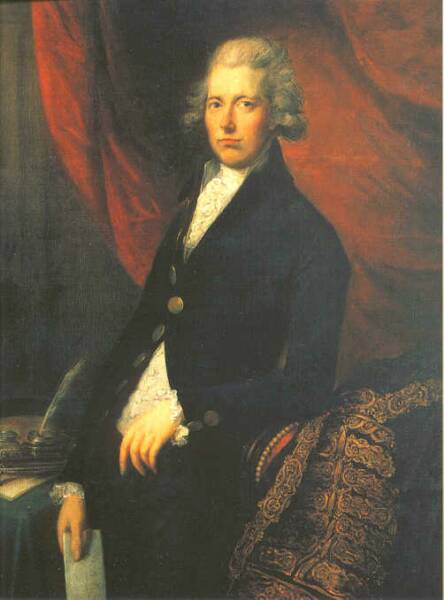When John "Mad Jack" Fuller first became a Tory Member of Parliament (MP), in February 1780, it was very much a family affair. At the age of 22, he was successful in a by-election in Southampton Borough. The by-election was prompted by the death of the incumbent, Hans Stanley ( born 23 September 1721), John Fuller’s first cousin once removed, who had been the member for Southampton since 15 Apr 1754. The grandson of Sir Hans Sloane, Hans Stanley, had committed suicide by cutting his throat, “ in a sudden fit of frenzy”, at Althorp, the Northamptonshire home of John Spencer, 1st Earl Spencer, on 12 January 1780. In the by-election Fuller defeated Cranley Kerby, (the recorder of Southampton) by a majority of 124.
Jack Fuller was subsequently returned MP for Southampton Borough in the general election, that occurred between 6 September and 18 October 1780, and sat for the town until the dissolution of Parliament in 1784. His first cousin, Hans Sloane (the grand-nephew of Sir Hans Sloane), was the other member for Southampton Borough and, in some sources, is credited with encouraging John Fuller to enter politics. The ballot count in the 1780 general election for the Borough of Southampton was: John Fuller 264, Hans Sloane 249 and John Fleming 237.
King George III appointed a new Prime Minister, the twenty-four year old William Pitt the Younger in 1783. Neither John Fuller nor Hans Sloane stood for reelection in 1784.
There is an oft repeated anecdote about John “Mad Jack” Fuller refusing a peerage offered by Mr Pitt. It is said that he threw the Minister's message into the fire, in the presence of a large party of friends, declaring "I was born Jack Fuller, and Jack Fuller I will die!"
Although no sources provide a date, it must have occurred at a point when both Fuller and Pitt were in office. William Pitt the Younger served two terms as Prime Minister: 19 December 1783 to 14 March 1801 and 10 May 1804 to 23 January 1806. Jack Fuller was Member for Southampton from January 1780 to 1784 and Member for Sussex from 1801-1812. So the offer and refusal could have occurred as early as 1783 or as late as 1806, excluding a gap of several years in between.
One can only conjecture as to why Pitt offered Fuller a peerage. Did he want Fuller “kicked upstairs” to the House of Lords because he had someone in mind to replace him as MP? Did Pitt want to honour Fuller or to get him out of the House of Commons where he was sometimes problematic? Perhaps we will never know.
